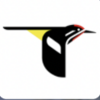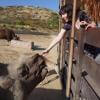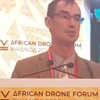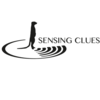With new technologies revolutionizing data collection, wildlife researchers are becoming increasingly able to collect data at much higher volumes than ever before. Now we are facing the challenges of putting this information to use, bringing the science of big data into the conservation arena. With the help of machine learning tools, this area holds immense potential for conservation practices. The applications range from online trafficking alerts to species-specific early warning systems to efficient movement and biodiversity monitoring and beyond.
However, the process of building effective machine learning tools depends upon large amounts of standardized training data, and conservationists currently lack an established system for standardization. How to best develop such a system and incentivize data sharing are questions at the forefront of this work. There are currently multiple AI-based conservation initiatives, including Wildlife Insights and WildBook, that are pioneering applications on this front.
This group is the perfect place to ask all your AI-related questions, no matter your skill level or previous familiarity! You'll find resources, meet other members with similar questions and experts who can answer them, and engage in exciting collaborative opportunities together.
Just getting started with AI in conservation? Check out our introduction tutorial, How Do I Train My First Machine Learning Model? with Daniel Situnayake, and our Virtual Meetup on Big Data. If you're coming from the more technical side of AI/ML, Sara Beery runs an AI for Conservation slack channel that might be of interest. Message her for an invite.
Header Image: Dr Claire Burke / @CBurkeSci

Explore the Basics: AI
Understanding the possibilities for incorporating new technology into your work can feel overwhelming. With so many tools available, so many resources to keep up with, and so many innovative projects happening around the world and in our community, it's easy to lose sight of how and why these new technologies matter, and how they can be practically applied to your projects.
Machine learning has huge potential in conservation tech, and its applications are growing every day! But the tradeoff of that potential is a big learning curve - or so it seems to those starting out with this powerful tool!
To help you explore the potential of AI (and prepare for some of our upcoming AI-themed events!), we've compiled simple, key resources, conversations, and videos to highlight the possibilities:
Three Resources for Beginners:
- Everything I know about Machine Learning and Camera Traps, Dan Morris | Resource library, camera traps, machine learning
- Using Computer Vision to Protect Endangered Species, Kasim Rafiq | Machine learning, data analysis, big cats
- Resource: WildID | WildID
Three Forum Threads for Beginners:
- I made an open-source tool to help you sort camera trap images | Petar Gyurov, Camera Traps
- Batch / Automated Cloud Processing | Chris Nicolas, Acoustic Monitoring
- Looking for help with camera trapping for Jaguars: Software for species ID and database building | Carmina Gutierrez, AI for Conservation
Three Tutorials for Beginners:
- How do I get started using machine learning for my camera traps? | Sara Beery, Tech Tutors
- How do I train my first machine learning model? | Daniel Situnayake, Tech Tutors
- Big Data in Conservation | Dave Thau, Dan Morris, Sarah Davidson, Virtual Meetups
Want to know more about AI, or have your specific machine learning questions answered by experts in the WILDLABS community? Make sure you join the conversation in our AI for Conservation group!
No showcases have been added to this group yet.
- @mdorigo
- | she/her
- 0 Resources
- 0 Discussions
- 3 Groups
- @stefan_istrate
- | he/him
Machine Learning Researcher & Nature Photographer. Building conservation tech for biodiversity monitoring at Wildlife Insights.


- 0 Resources
- 5 Discussions
- 9 Groups
Society for Conservation GIS


- 0 Resources
- 25 Discussions
- 5 Groups
Department of Conservation (New Zealand)
I work with the Terrestrial Biodiversity Team at the Department of Conservation, New Zealand. I'm interested in machine learning and spatial data science.
wekaResearch.com | doc.govt.nz

- 0 Resources
- 9 Discussions
- 4 Groups
GreenLab


- 0 Resources
- 20 Discussions
- 8 Groups
Welfare and Wildlife Conservation Data Scientist
- 0 Resources
- 0 Discussions
- 7 Groups
World Wide Fund for Nature/ World Wildlife Fund (WWF)
WWF-Tanzania GIS Specialist/Developer/Trainer
- 0 Resources
- 1 Discussions
- 7 Groups
- @MattyD797
- | He/Him
PhD Student | Cornell University | Smithsonian Institution; My focus is in computational ecology within fishery acoustics


- 0 Resources
- 16 Discussions
- 12 Groups
- 0 Resources
- 0 Discussions
- 1 Groups
- @JackEdney
- | He/Him
Machine Learning Engineer specialised in computer vision and a passion for conservation and rebuilding.
- 1 Resources
- 1 Discussions
- 5 Groups
Luxembourg Institute of Science and Technology
Undertake and develop biodiversity monitoring


- 6 Resources
- 10 Discussions
- 4 Groups
My name is Caroline from Nairobi Kenya. I am a new entrant into wildlife conservation space and am looking forward to learning a lot more
- 0 Resources
- 2 Discussions
- 2 Groups
Careers
The Senior Conservation Technology Specialist will be responsible for providing technical advice and capacity development to GWP project teams on conservation technology, distilling challenges and lessons from project...
22 September 2022
Link
Listen to Tanya Berger-Wolf's conversation about AI for Wildlife Conservation and imageomics with Lauren Burke on the Women In Analytics After Hours Podcast.
21 September 2022
Amazon Sustainability is welcoming proposals related to climate risk/resilience, life cycle assessment, circular strategies, and more. Selected PIs receive unrestricted funds, no more than $80,000 USD on average
20 September 2022
As UNGA begins, Google.org is committing $25M to accelerate progress towards the UN's Sustainable Development Goals. Applications are now open for nonprofits and social enterprises.
16 September 2022
IBM Research Scientists are charting the future of Artificial Intelligence, creating breakthroughs in quantum computing, discovering how blockchain will reshape the enterprise, and much more. Join a team that is...
16 September 2022
Join my brand new group at MIT in Fall 2023!!
12 September 2022
Careers
The BirdNet team are seeking to fill three roles, including an Ecologist, Data scientist and an Embedded Systems Engineer based in Germany.
9 September 2022
At the Inria Sophia Antipolis - Méditerranée center. The project will pursue two different methodological goals: (1) explore the use of natural language bottlenecks describing visible traits or other visual...
1 September 2022
Silva et al - - R package to train convolutional neural networks & employ them to classify sounds - sound event classification pipeline, from annotating recordings to automating trained networks - case...
1 September 2022
This is the first in a series by David Thau on the promise and challenges to using AI and machine learning to create a planetary environmental management system.
31 August 2022
Article
APPLY NOW! The Sovereign Nature Initiative has partnered with the Kenya Wildlife Trust to experiment with emerging technologies to support their predators' conservation work.Challenges will focus on:1. Lion...
30 August 2022
This project is part of the Conservation AI Network. We aim to help threatened species & manage invasive species using leading edge analytics and artificial intelligence algorithms. The primary purpose of the...
29 August 2022
August 2025
event
September 2025
event
event
event
event
October 2025
event
event
event
December 2025
event
March 2026
March 2024
event
February 2024
17 Products
Recently updated products
| Description | Activity | Replies | Groups | Updated |
|---|---|---|---|---|
| Hi Ethan, It's indeed a competitive area. My advice for you (and anybody else seeking a PhD supervisor)...Do background research on each individual potential supervisor and always... |
|
Early Career, AI for Conservation, Animal Movement, Climate Change | 2 months 4 weeks ago | |
| Hi everyone,What should we share or demo about Software Quality Assurance? Alex Saunders and I, the two Software QA people at Wildlife Protection Solutions (WPS) are going to... |
|
Software Development, AI for Conservation, Open Source Solutions | 2 months 4 weeks ago | |
| My name is Frank Short and I am a PhD Candidate at Boston University in Biological Anthropology. I am currently doing fieldwork in Indonesia using machine-learning powered passive... |
|
Acoustics, AI for Conservation, Animal Movement, Data management and processing tools, Early Career, Emerging Tech, Ethics of Conservation Tech, Protected Area Management Tools, Software Development | 3 months 1 week ago | |
| This looks like a great application, thank you! I wonder if they are planning to run this study in future years. |
|
AI for Conservation | 3 months 1 week ago | |
|
|
Latin America Community, Acoustics, AI for Conservation, Camera Traps, Drones, Early Career | 3 months 2 weeks ago | ||
| @LukeD, I am looping in @Kamalama997 from the TRAPPER team who is working on porting MegaDetector and other models to RPi with the AI HAT+. Kamil will have more specific questions. |
|
AI for Conservation, Camera Traps | 3 months 2 weeks ago | |
| Super happy to finally have Animal Detect ready for people to use. We are open for any feedback and hope to bring more convenient tools :) |
|
AI for Conservation | 3 months 2 weeks ago | |
| Hi Ștefan! In my current case, I am trying to detect and count Arctic fox pups. Unfortunately, Arctic fox does not seem to be included in the training data of SpeciesNet but... |
+16
|
AI for Conservation, Camera Traps | 3 months 2 weeks ago | |
| Interesting. Thanks for the explanation. Nice to hear your passion showing through. |
|
AI for Conservation, Camera Traps, Data management and processing tools, Open Source Solutions, Software Development | 3 months 2 weeks ago | |
| 📸 Do you use camera traps in your work? Take part in our survey!Hi everyone! I’m currently a final-year engineering... |
|
Camera Traps, AI for Conservation, Data management and processing tools, Open Source Solutions, Software Development | 3 months 2 weeks ago | |
| WILDLABS colleagues—My team at TNC is looking for support as we try to understand opportunities of AI applications for freshwater (eco)... |
|
AI for Conservation | 3 months 3 weeks ago | |
| Hi Adam! Sounds like you have your work cut out for you. I have not used radar systems or AI systems for this sort of detection, but there are methods using change detection... |
|
AI for Conservation, Drones, Wildlife Crime | 3 months 3 weeks ago |
WILDLABS Virtual Meetups Season Four: Tracking Progress
29 April 2022 9:57am
News: The Latest in Conservation Tech (March 24)
24 March 2022 12:00am
Apply now: Women in Conservation Technology Programme, Kenya
8 March 2022 12:00am
BirdCLEF 2022 Kaggle Challenge
 The Cornell Lab of Ornithology
The Cornell Lab of Ornithology
2 March 2022 12:00am
Introducing the WILDLABS On the Edge Fellows
10 February 2022 12:00am
WILDLABS Fellowships & Awards: Matchmaking between tech and conservation
28 January 2022 3:22pm
Deep Learning for Marine Ecology and Conservation
20 December 2021 12:00am
AI for Conservation Office Hours: are you interested?
8 October 2021 12:00pm
14 December 2021 2:47pm
We've now wrapped our first run of AI for Conservation Office Hours and you can read my review of how it went and lessons learned here.
Given the overall success of the programme, we're excited to announce that in early spring next year we will be coordinating a second round - so keep an eye out for further updates in the new year on the application and sign-up process.
Also, we'd love to know whether you'd be interested in having a 1:1 so comment below and tell us what conservation tech challenge you would like to cover or how a session could help you in your conservation work.
Many thanks,
Lucas
AI for Conservation Office Hours: 2021 Review
14 December 2021 12:00am
Low-cost underwater camera trapping and deep learning
30 November 2021 12:00am
The race to save California's rarest butterflies
29 November 2021 12:00am
Environmental Data Justice
26 November 2021 12:00am
Technical Difficulties: The Promise and Pitfalls of Machine Learning for Conservation
 Sara Beery
and 1 more
Sara Beery
and 1 more
23 November 2021 12:00am
Caiman: Images as Sources of Intelligence
18 November 2021 12:00am
Try our open-source automatic camera trap detection/labeling tool!
12 November 2021 8:39pm
Opportunity: GEO-Microsoft Planetary Computer Programme
4 November 2021 12:00am
EarthRanger Announces Inaugural Conservation Tech Award Recipients
3 November 2021 12:00am
Opportunity: PhD or Postdoctoral Research Fellowships - Chinstrap penguin biologging
1 November 2021 12:00am
Using IoT and Machine Learning to help protect Kenya's Rivers
21 October 2021 12:00am
Tech Tutors: How do I analyze large acoustic datasets using PAMGuard?
14 October 2021 3:42pm
How do I analyze large acoustic datasets using PAMGuard?
7 October 2021 12:00am
Call for Papers: Special Issue on Computer Vision Approach for Animal Tracking and Modeling
20 September 2021 12:00am
Tech Tutors: How do I use AI to fight wildlife crime?
1 September 2021 10:59pm
Which are major open challenges that AI can help to solve in nature conservation ?
28 April 2021 9:15am
4 August 2021 5:00pm
I would perhaps ask this in a new thread, so the rest of the community can see it! (as opposed to a reply here, where only the people in the conversation are notified of more replies).
13 August 2021 10:04pm
Elizabeth Bondi has work on detection from thermal imagery taken by drones! I'd look at her papers :)
27 August 2021 10:51am
Looks good, but what is the added value compared to other examples as Obsidentify and Plantnet?
AI/ML Engineer Job at Dryad
26 August 2021 2:45pm
Widening the Bottleneck: Can Citizen Science Accelerate Conservation?
19 August 2021 12:00am
Open positions in ML & conservation/climate sci
18 August 2021 2:22pm
Geo for Good Lightning Talks: Nature Conservation
 Google Earth Outreach
Google Earth Outreach
17 August 2021 12:00am
Building Sustainable Support with Edge Impulse
13 August 2021 12:00am
Accessible Tech and Real Impact with the WILDLABS Fellowship: On the Edge
9 August 2021 12:00am

















































25 October 2021 4:13pm
Hi Wildlabbers!
We're now going ahead with a small pilot of around ten 1:1 office hour sessions with Microsoft AI for Earth specialists. More details coming very soon.
For the time being sign-ups are now closed, but thank you to everyone who has been interested. We will keep you updated on how the 1:1s go and whether there will be further sessions to sign up for later in the year.
Cheers,
Lucas